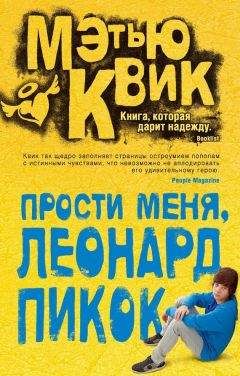Stuart Kaminsky - The Dog Who Bit a Policeman
Her bag slung over her shoulder, she pressed the button for her floor and stood back against the wall, trying not to remember what she had seen.
What happened next came so fast that Elena had no time to think or react. A dog came through the closing doors. It was moving with great speed and it leapt at Elena, sinking its teeth into her left shoulder. The pain was searing, and Elena had a flashing vision of herself sinking to the floor of the elevator with the dog ripping at her flesh and going for her face or neck the way the animals had done to each other the night before.
She wanted to scream out for help but she couldn’t.
The elevator door was almost closed. She punched the determined dog’s snout with her fist and leaned over to sink her teeth into the neck of the animal. Pain drew her head back. She was vaguely aware that someone was forcing the door back open, someone was entering the elevator, the door of which slid shut as the figure entered.
Elena fought off the urge to pass out. As she sank down along the wall with the dog still tearing at her shoulder, she turned her head, opened her mouth, and leaned painfully toward the thick furry neck of her attacker.
Chapter Nine
“I will have to take the body back to my laboratory,” said Paulinin, gloves on his hands, kneeling on a bath towel which had been brought to him.
Iosef, Zelach, and two uniformed policemen stood watching the wild-haired man poke, prod, and examine the badly burned body.
“I can tell you several things, however. First, I may be able to salvage a few of the photographs and maybe usable pieces of tape.
Second, this is not Yevgeny Pleshkov. I have seen newspaper photographs of Pleshkov smiling. In spite of his fame and following, Pleshkov has Russian teeth, uneven, a few twisting, and certainly with a filling or more made of inferior material. This man has perfect teeth, all capped, almost certainly by a dentist in or from a Western country.”
Iosef was taking notes.
“Further, this man was younger and not as heavy as Pleshkov. I will need to examine him carefully in my laboratory, but it appears this man was murdered and then burned. The skull is recently scarred and several splinters of burned wood are embedded here.”
He pointed to the blackened skull.
“Also,” Paulinin said, “there are splinters in the neck wound and one of the ribs has a fracture, a hairline fracture. I would guess with confidence that he was stabbed in the neck with a splinter of wood and beaten by something heavy, also wood.”
“A stake. Like a vampire,” said Zelach. “Maybe whoever killed him thought he was a vampire?”
It was one of the longest statements and one of the few observations Akardy Zelach had made since Iosef met him. Iosef was reluctant to simply dismiss the question.
“It is a possibility worth exploring,” said Iosef. “You believe in vampires, Zelach?”
“My mother does,” he said, looking at the body. “She says she has seen them. I. . I don’t know.”
Paulinin shook his head, considered saying something to Zelach, and decided instead to continue his search. “Ah, some hairs.”
He took one of the half-gallon Ziploc bags from his right jacket pocket. There were also smaller plastic bags, which Paulinin seldom used.
“Why,” the scientist said, finally rising, “is Emil Karpo not on this case?”
“He is on another important assignment,” Iosef said.
Paulinin’s face showed great irritation. “I’ll carry these pieces of evidence myself. You carefully get this body and anything else that may be of interest to my laboratory. Where is Emil Karpo or Porfiry Petrovich Rostnikov when I need them? They would know what I would be interested in seeing. Don’t answer. I’m leaving before it rains.”
The sky was indeed dark. Iosef ordered the two policemen to call for a police ambulance to take the body to Paulinin’s laboratory. Paulinin left and so did the two policemen.
Zelach and Iosef stood looking down at the burnt debris and the body.
“I wonder how easy it is to get out of here without being seen,”
said Iosef. “Service doors, emergency exits. How did Pleshkov get out past the doorman, who claims he did not leave?”
Iosef had asked himself the question, but Zelach answered.
“Maybe he didn’t get out,” said Zelach.
“We looked everywhere,” said Iosef patiently. “We have had every corner, every apartment searched.”
“No,” said Zelach.
“No? Where didn’t we look?”
“Yulia Yalutshkin’s bedroom,” Zelach said, slouching forward, his eyes fixed on the body.
Iosef looked at him with new respect. Zelach may very well be right. In which case, Iosef would look like a fool when he explained to his father that they had not checked the bedroom. If Zelach was right, Yulia had performed magnificently. Iosef dashed for the door to the roof, with Zelach right behind. If Pleshkov had been in the bedroom, he might still be there. He had to be there. There was an armed guard at the door of Yulia Yalutshkin’s apartment.
What troubled Iosef even more than the likelihood that Pleshkov had eluded him was the very real possibility that the distinguished member of the congress, probably the next president of Russia, may well have been involved in or even committed a brutal murder. What led Iosef to this conclusion was the distinct possibility that the burned body was that of Jurgen, Yulia’s German lover and protector, who probably had good Western teeth.
Paulinin would find out if Iosef was correct. Meanwhile, Iosef had to find Yevgeny Pleshkov.
The jaws of the dog opened and Elena felt the animal’s weight lift from her. Her own teeth had been about to sink into the animal’s neck and she had tasted fur when the weight was lifted. She could feel the elevator slowly going up. She opened her eyes, sat up as best she could, and saw Porfiry Petrovich holding the dog by the neck. The dog was writhing and growling, snapping at air with blood on his teeth, Elena’s blood.
“Be calm, dog,” said Rostnikov, placing the animal on the floor but maintaining his grip. “I have no wish to hurt you. Neither do I have a wish to take you home as a pet.”
The dog suddenly grew quiet.
“Good,” said Rostnikov, putting the dog at his left side. “Be reasonable and you will survive.”
The dog, however, let out a growl and sank its teeth into Rostnikov’s leg. His teeth and jaws suddenly quivered with pain. The dog let go and backed into a corner, cowering. He had never encountered anything like Rostnikov’s prosthetic leg.
“Now,” said Rostnikov, “sit and be quiet. If you try to bite me one more time, you will further destroy my clothes, which I can ill afford, and I will have to kill you. I have never killed a dog or a cat or a beetle. Remind me someday to tell you a story about beetles.”
The frightened dog had appeared to be listening, and Rostnikov had spoken to him in the same way he would talk to a human.
The elevator moved up.
Porfiry Petrovich took three steps across the ascending elevator and leaned over to examine Elena’s shoulder.
“We need towels,” he said. “You will need a tetanus injection and some stitches.”
“How, why are you here?” Elena said painfully as she stood.
“To save your life,” he said. “An informant overheard two men talking in a booth of a restaurant. That is the informant’s job. The two men were talking about killing you. I came here to get you out and maybe Sasha.”
“Your timing was perfect,” Elena said after biting her lower lip to keep away the pain.
“Not really,” said Rostnikov. “I was following you when you went out for coffee. When you returned here, a man got out of a car with the dog. I moved as quickly as I could but I couldn’t get to the dog quickly enough. The man said ‘Kill’ and pointed at you as you stepped into the elevator, and then the man stepped outside.
I got to the elevator just in time to get my hands on the closing door. The rest you know.”
“Let’s get Sasha and leave,” said Elena.
The elevator came to a stop at the floor of the suite.
“I may have an alternative idea,” said Rostnikov, looking back at the dog which had crept forward on its belly. “Back,” he said firmly.
The dog slunk back, not wanting the clamp of the man’s fingers around his neck or the taste and texture of the strange leg. By now the dog was firmly convinced that the man was completely made of plastic and metal and could not be hurt.
The elevator door slid open.
Awkwardly but gently, Rostnikov helped Elena out of the elevator and reached back in to press the button for the first floor. The dog looked up at Rostnikov and Elena as the door slid closed and the bloody elevator started down with the dog inside.
“You said you have an alternate idea?” said Elena as Rostnikov lifted her in his arms and asked her which room was hers and Sasha’s.
“Yes,” said Rostnikov. “I’m afraid you are going to have to die.”
“I don’t understand,” said the confused young man in uniform and helmet, weapon at his side, helmet strap digging deeply into his chin.
They were standing outside of Yulia Yalutshkin’s apartment.
Zelach had been sent down to the lobby. Iosef had checked the bedroom. Yulia was gone. It was clear that someone had slept in the bed besides the woman. The bed was still slightly warm and there were a few dark hairs between the sheets, possibly pubic hairs.
“A man came out of this apartment while you stood guard,” said Iosef, trying to remain calm. “And the woman is gone.”
“No man came out,” the young policeman said. “And she didn’t. . I thought she was. .”
“What happened?” asked Iosef.
“She asked me to come in,” the policeman said. “She needed someone to help her button the back of her dress.”
“So you went into her bedroom?”
“For an instant. I could see her the entire time.”
Zelach reappeared, panting, and said, “The doorman saw Pleshkov and the woman leaving the building about ten minutes ago.”
“Your name, Officer,” asked Iosef.
“Nikita Sergeivich Kotiansko,” the young, bewildered man said, looking at the closed door.
“How long have you been a police officer?”
“Six weeks,” Kotiansko said.
Actually, Iosef knew it wasn’t a matter of experience as much as common sense. Nikita had neither tool to fall back on.
“How did she get out? We can assume Pleshkov was hiding in the living room and hurried out when you went into the bedroom, but how did she get away?”
Zelach and Iosef waited for an answer.
“It must have been when she asked me to pick a different dress out of her closet. I couldn’t button the dress. The holes were too small. She said she was going to get something to drink.”
“So she wasn’t wearing anything,” said Iosef.
Nikita stood at attention, not looking at the two inspectors.
“Very little,” said the policeman. “I didn’t think she would run away. This is her apartment. She had no clothes on.”
“She almost certainly had a dress hidden in the living room,”
said Iosef.
Though he said and showed nothing, Zelach thought his partner was amazingly clever.
“Did she touch you, Nikita Sergeivich?” asked Iosef calmly.
“Once, my cheek,” said the policeman. “Said I should look for something in the closet I liked. She touched my cheek. I could smell her perfume. What will happen to me?”
“Go up to the roof,” said Iosef. “You’ll find a shed with some evidence. Touch nothing. Guard it. Hope that it rains and you get very wet so I feel sorry for you.”
“Yes, Inspector,” said the young man.
Nikita Sergeivich Kotiansko moved very quickly.
Viktor Petrov was as dedicated to his work as a hotel security guard as he had been dedicated to his work as a police sergeant before his wounding. Viktor was thirty-three years old and lucky to be alive. He had been involved in a shoot-out seven years earlier when he had just made sergeant. Three young boys were caught inside of a store where they were cleaning out its contents. Petrov had been shot by a fourteen-year-old. Death had seemed certain, but almost miraculously he had survived his chest wound. Petrov, recovering in the hospital, had been visited by the minister of the interior himself and given a medal. He was then told that he had a collapsed and unfixable lung and, therefore, would be honorably retired with a pension. The pension, he knew, was not enough to feed, clothe, and shelter himself, his wife, and their then infant son.
Though he told no one, Petrov had no desire to return to duty following his shooting. He was afraid because he was a young man in a job growing more dangerous. He had been given an honorable escape.
Petrov had drifted from job to job. For almost a year he was on the security staff of the Bolshoi Theater. The job paid poorly and the hours were terrible but there were perks, including food from various company parties, mainly for wealthy foreigners.
But Petrov’s wife had grown ill with a disease of weariness the doctor called chronic fatigue syndrome, which he said could not be cured. Petrov’s wife couldn’t work.
So Viktor Petrov moved on to a job that paid much more. He became, as his father had been, a waiter. For a year he had waited tables at a private club. After being a policeman, however, he found it humiliating to be an anonymous figure to loud men and over-dressed women. He found it humiliating to constantly be saying
“thank you very much” for tips he had earned.
And so, Viktor had found, through a friend who was not only still a policeman but now a captain, the job of security guard at the Leningradskaya Hotel. The hotel was one of the seven huge concrete monstrosities built on Stalin’s orders in the 1950s. Some found the hotel strangely beautiful. Others pronounced it a hideous tower whose rooms should be reserved for visiting mad scientists.
Petrov liked working there and asked to work nights when he would chance on few hotel employees and fewer guests. If a patron of Jacko’s Bar in the hotel grew unruly, it was not Petrov’s problem.
Jacko’s had its own security. His primary job was to check the doors to be sure they were locked, and look for thieves.
Security at the front door was good, but from time to time one of the petty criminals, gypsies, or desperate homeless who spent their hours in the Leningradsky, Yarolslavsky, or Kazansky railway stations directly across from the hotel made their way in. Petrov was armed, an American.38-millimeter pistol that he had been ordered to buy with his own money.
The rooms of the Leningradskaya were not fancy or particularly well furnished, but they were relatively clean and, by Moscow standards, which were far beyond the reach of Petrov, relatively inexpensive.
Early in the morning, before the sun was quite ready to rise, Petrov had moved slowly down the halls, hearing or imagining that he heard the loud band in Jacko’s that played every night almost till dawn.




